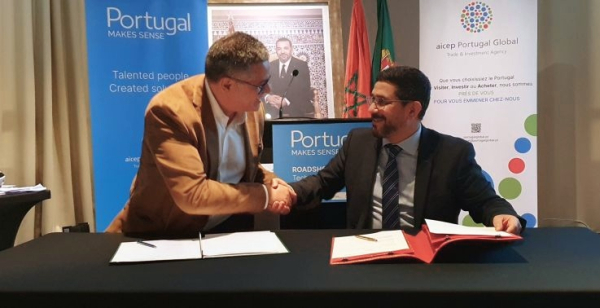In recent years, Morocco has built a number of partnerships to develop its digital sector. Last October, the government announced international partnerships that would help create more than 14,000 direct digital jobs in the country.
On December 6-9, 2022, Morocco hosted a mission of Portuguese tech entrepreneurs in partnership with several digital actors, namely the Agency for Investment and Foreign Trade of Portugal (AICEP Portugal Global), the National Association of Young Entrepreneurs (ANJE), the Confederation of Enterprises of Portugal (CIP) and the Association of Companies for a Network of Innovation of Aveiro (INOVA-RIA).
The mission aimed to present the current potential of the Portuguese technology ecosystem, identify business opportunities and establish partnerships with Moroccan tech companies.
During the 4-day visit, participants took part in B2B meetings in Casablanca. In Rabat, they also participated in a forum with the Moroccan public administration and local entities that have digital projects. Through that visit, the Portuguese tech entrepreneurs wanted to present themselves as privileged partners in the Moroccan ICGT industry and consolidate the relationship between the two countries’ digital actors.
Portugal is among the most business-friendly, stable, and open countries in the European Union in terms of innovation, digitization, and technical expertise. It is currently the 7th most advanced country in Europe according to the "Digitization in Europe 2020-2021" report. According to the World Economic Forum's Global Competitiveness Report 2020, it is the 6th best-prepared country in the world for the energy and digital transition, enabling a greener and more inclusive economy.
Thanks to the envisaged partnerships, Morocco will be able to take advantage of Portugal’s skills and experience to effectively implement the numerous projects planned in its digital strategy. In the Maghreb, Morocco is one of the pioneers of digital transformation. In 2005, the country started implementing digital strategies, including the "e-Morocco 2010" strategy, followed by the "Digital Morocco 2013" plan, "Digital Morocco 2020" and "Horizon 2025". In 2020, it was ranked fourth in the MENA "Digital Risers" (ranking of countries in terms of digital competitiveness).
Samira Njoya



















